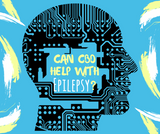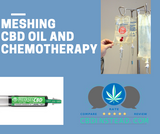When we find someone who has taken our heart, we put so much trust in them. Unfortunately, some people abuse this trust and can make us worse for wear. What is it about relationship abuse that makes our brains change? Is there any hope for love again when you’ve been mistreated?
What Does An Abusive Relationship Look Like?
Some people will find themselves in an abusive relationship and not even realize it. It could be because their partner treats them just like their abusive parents, so they don’t know any better. It could be because the abuse started happening slowly and the damage has snuck up and made the victim feel as if they have to stay. But you never have to stay.
There are different types of abuse you can experience. Some people might feel as if they don’t have a say in the dialogue because they weren’t physically hit or sexually assaulted. But emotional abuse can have a lasting impact on our minds, so every form of abuse should be taken seriously.

Different Types Of Abuse
Physical
Physical abuse is one of the easiest ones to see. This is when they punch, slap, kick, strangle, or throw you. This is the abuse that leaves the scars, bruises, and broken bones. No one should ever lay a hand on you in a way that hurts you or makes you uncomfortable, especially in a loving relationship. Even if your partner is a woman who is smaller than you, hitting, biting, or scratching you is still physical abuse.
Sexual Abuse
Sexual abuse can be forcing sexual acts, or it can be withholding them. If your partner uses sex as a weapon, saying they won't be intimate with you unless you do something they want, this is sexual abuse. Pressuring you into doing sexual activities you aren’t comfortable is a form of sexual abuse. If your partner makes you feel small for not having sex with them or threatens to hurt you if you don’t have sex with them, this is also sexual abuse. If you don’t feel comfortable while you are intimate, that isn’t normal. Sex is a beautiful thing that brings couples together, not something to be forced or used as a weapon. You also never have to have sex just because you are married or in a relationship. It is your body, so it is your choice.
Emotional
If your partner is continually making you feel unworthy, they are abusing you. If they make a point to force you to realize they hold all of the cards and you have nothing, get out of this relationship. You should never be called stupid, ugly, useless, or anything that would make you feel like you are less than you are. You are worthy of love and affection; this person doesn’t deserve your time if they can’t love you the way you deserve.
Psychological
It is very easy to wear down someone’s sense of well being and mental health in the right circumstances. Have you ever heard of gaslighting? The term comes from a movie made in the 1940’s, and the story goes like this:
A man and a woman are married living in a house, and the man makes it his mission to convince his wife that she is crazy. He confines her to his home, telling everyone that she isn’t well. He knocks on the walls, and when she questions it, the husband says it’s all in her head. She notices that the gas lights are getting dim, but he tells her that she is mistaken. The woman slowly starts to question her own sanity while her husband denies all of the things that he has done in the house. This is an example of gaslighting.
This becomes easier to do if your partner forces you into isolation. If you have no one to talk to but your partner, then their truth is the only one that exists. You can begin to trust your partner more than you trust yourself because clearly, you lack judgment if the house isn’t getting any darker when you think it is. They may withhold information from you, or change the way events happened, so it best fits their narrative. They may undermine you or tell you that you are too sensitive. If you feel uncomfortable in your own home with your partner, this is not a normal feeling, and you should get out.
Financial
We live in a world where money is power. People can use this against the people who they are supposed to love. Running debts in their partner's name, destroying their credit. Not letting their partner have access to their own money. Some partners go as far as not to let their partner get a job to make their own money. Often people feel trapped in these situations because they have no means to escape. No money for a hotel, no car, nowhere to turn to. And when they finally do get out, their credit can be so destroyed that they end up with no home.
Cultural
Cultural abuse is when someone uses your culture or identity against you. If you are Muslim and your partner doesn’t want you wearing your hijab, this is a form of cultural abuse. If they cook you bacon when your religion states you stay away from pork and they don’t tell you, even if they do, this is a form of abuse. If you are LGBT and they threaten to out you to your friends and family, this is cultural abuse. If you don’t speak the dominant language of the country and they isolate you because of it, this is cultural abuse. Abuse is generally about power, and if they use who you are against you, that is no way to live with someone who is supposed to nurture and care for you.
Why You Can’t Forget
Maybe you’ve gotten out and started seeing people again. But anytime someone says the word “stupid” you instantly want to curl up into a ball under the table. You can’t get intimate because you think of how uncomfortable intimacy made you feel. Why is it that even after you have finally left your loser abuser, you are haunted by the hateful acts they made against you?
The reason may be because of brain damage.

PTSD And The Brain
The Hippocampus
The hippocampus is a part of the limbic system which helps to control and regulate emotions. One of the primary jobs of the hippocampus is forming new memories and learning emotions. The hippocampus plays a role in building, organizing, and storing new memories and associating them with sensations and emotions.
Have you ever smelled something and then were instantly taken back to better times? Baked cookies reminding you of the morning you woke up for Christmas at grandma’s house, and you finally got that toy you’ve been begging for. So much joy in the room as you ripped the shiny paper off of the box and how alive you felt when you gazed upon the perfect toy. This association is thanks to your hippocampus.
It’s spectacular how our brains can be reminded of things we haven’t thought about in years just by smell or taste. But this superpower our mind has can also be used against us. If you have suffered abuse, your brain associates things to a time where you were uncomfortable, anxious, or full of fear. So every time you smell your abuser's cologne or perfume in a crowd, you may remember a time that truly traumatized you and your feet turn to cinderblocks on the pavement.
Trauma And The Hippocampus
When you are called stupid on a regular basis, you feel stress or discomfort on a daily basis. Being raped, beaten, isolated, and manipulated causes stress. Researchers believe that undergoing constant stress can start to do damage to your brain. When you experience stress, a chemical called cortisol is used in the brain which can damage neurons. Studies have found that abuse-related PTSD may cause damage to the hippocampus. But the hippocampus isn’t the only part of the brain that has been associated with PTSD, the amygdala and the medial prefrontal cortex also have shown in studies to malfunction.
The Amygdala
If you are walking across the street and someone makes a turn that causes them to head your way at full speed, your amygdala is what makes you feel alert and jump out of the way. The amygdala is what makes you feel fear and alerts other parts of the brain so you can react. Without this part of the brain, natural selection might have taken us out centuries ago.
Studies have shown that people with PTSD have a smaller amygdala. When the amygdala is smaller, it becomes overactive. This could be the reason that people who have PTSD have anxiety and a sense of fear more often and at a higher level than people who don’t have PTSD.
The Medial Prefrontal Cortex
The medial prefrontal cortex is in charge of decision making. With PTSD, you might find it hard to make decisions, and that may be because of changes due to stress. Another thing this part of the brain does is map events and context onto appropriate actions. It directs the proper emotional or motor reaction to events considering past experiences.
Researchers believe that the medial prefrontal cortex plays a role in PTSD because of its function of self-insight and self-reflection. It is unknown if PTSD causes this impairment or if this damage comes from the amygdala’s injuries. They have even speculated that people who have a damaged medial prefrontal cortex are less susceptible to PTSD, but more research is needed.
What Can You Do?
If you have experienced abuse and now have PTSD, you might have brain damage due to stress. Just another thing to be angry at your abuser for, but don’t let that consume you. You’re getting past that, they are no longer in your life, and you can take control over your life again. But how?
Therapy
If you have PTSD, you might have thought ruminations, have a hard time facing fears, and overall anxiety that runs your life. Talking to a professional can help you discover coping mechanisms that work for you, and they can give you exercises that help you conquer your fears.
Take A Break From Social Media
If you have experienced abuse, you are going to notice how prominent it is on social media. Especially in this #MeToo climate, it can be hard to remember that not every person is out to get you. Take a break from social media, surround yourself with loving people. Remind yourself that there is love out there for you and you don’t have to suffer.

CBD Oil
Cannabidiol (CBD) has shown in studies to be effective towards people who have experienced trauma through abuse. It has helped people with their sleep, with their anxiety, and recent studies have shown that it may even help your brain repair the damage done by elevating a chemical in our brain called BDNF.
Take Back Your Life
If you have just discovered you are in an abusive relationship, make sure to take the proper steps to leave. If you go out with a bang, don’t have a good support group, or neglect to inform the police if you feel like you are in danger, things can escalate and get out of hand quickly. Don’t let that fear stop you from taking your life back, though. No one deserves to feel the way abusers like to make their victims feel. If you feel like you are alone and need help, you can always utilize hotlines that have professionals waiting to help.













